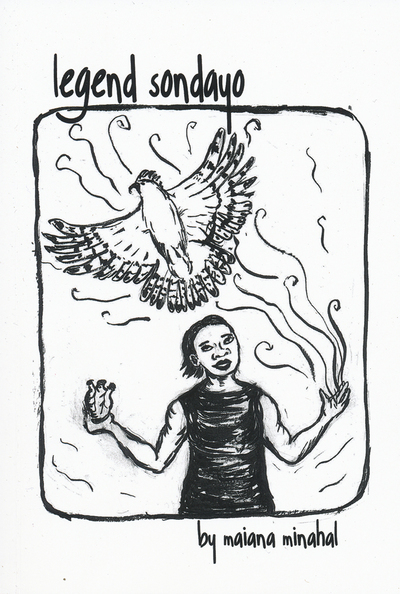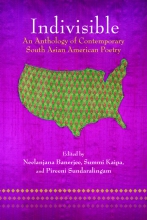Barbara Jane Reyes
Congratulations to Indivisible - First South Asian American Poetry Anthology
Congratulations to Hyphen's own Neelanjana Banerjee, who, with Summi Kaipa and Pireeni Sundaralingam, has co-edited an extensive and gorgeous collection of South Asian American poetry, the first ever in this country. Given the popularity of multicultural literature in the U.S.A. in the last decade or so, I was a little surprised to hear that there have been no previous specifically poetry anthologies coming out of the community.
These were my questions for Neela:
Book Review: Legend of Sondayo
By Maiana Minahal (Civil Defense Poetry)
Small Press: Fay Chiang, '7 Continents 9 Lives'

Early last year, the kind folks at Eth-Noh-Tec hosted New York-based community activist and artist Fay Chiang, who read from her then unpublished manuscript, 7 Continents 9 Lives, and conducted a great discussion on her project Zero Capital. The topic of discussion for the evening was one we can all appreciate. In these difficult financial times, how do we make work with no or little funds; support the artistic work of emerging younger artists; work intergenerationally, interdisciplinary and in cross communities, utilizing and maximizing resources we have on hand in our communities? In other words, how do we create something out of nothing?
Small Press: Lantern Review
Hello all, long time no blog!
I wanted to put this out there as part of my ongoing interest in Asian Americans involved with small presses. The new online Asian American poetry journal, Lantern Review, is now accepting submissions to its inaugural issue.

Small Press: Kenji Liu, 'You Left Without Your Shoes'
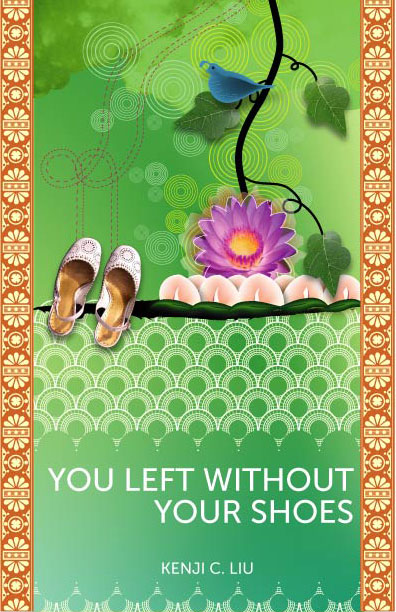 Recently, I had the pleasure of participating in a well-attended Asian Pacific American Latin@ literary event which took place at The Nest, a super cool live/work loft and art space in Oakland. Poet Kenji C. Liu curated and hosted the event, which was meant to celebrate the connections between our API and Latino activist and artist communities.
Recently, I had the pleasure of participating in a well-attended Asian Pacific American Latin@ literary event which took place at The Nest, a super cool live/work loft and art space in Oakland. Poet Kenji C. Liu curated and hosted the event, which was meant to celebrate the connections between our API and Latino activist and artist communities.
Small Press: Joseph O. Legaspi, 'Imago'
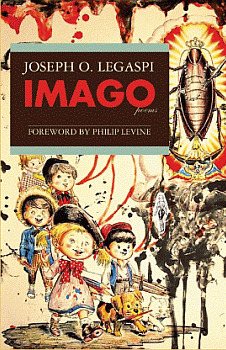
He is co-founder of the nonprofit Asian American poetry organization, Kundiman, and he currently lives and works in Manhattan.
In his foreword to Legaspi's debut collection, Imago, poet
Philip Levine writes, "Legaspi, like William Carlos Williams, can find
poetry anywhere. And like his mentor Pablo Neruda, he seems able to
locate the mysterious and the magical in the most common and overlooked
objects."
Imago is a lush and dense collection of poems, in
which even the tradition of Filipino adolescent circumcision is infused
with lovely details, as in the opening poem, "Imago":
boys wearing the skirts of their sisters
and grandmothers, touched
by the hands of their mothers,
baptized by green waters,
and how by week's end
we will shed our billowy skirts,
like monarchs, and enter
the gardens of our lives.
Small Press: Sasha Pimentel Chacon, 'Insides She Swallowed'

I've just spent a better part of my weekend at the San Francisco International Poetry Festival, in which El Paso-based Pinay poet Sasha Pimentel Chacon participated. Some of you may remember her name from Neela Banerjee's review of OCHO #16, a literary journal which I guest-edited last year, and in which I included Chacon's poems. While the former San Francisco Poet Laureate Jack Hirschman invited Chacon as a poet representing the Philippines, she was raised in Atlanta, schooled at Fresno State, and now teaches at University of Texas at El Paso. In other words, she is an American poet. Still, it was great to see the festival include a Pinay voice, especially one so fierce.
Small Press: Nick Carbo, 'Chinese, Japanese, What Are These?'
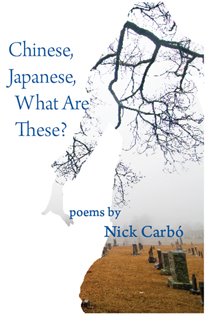
There is something heartbreaking about Filipino American poet Nick Carbo's latest collection of poetry, provocatively titled Chinese, Japanese, What Are These? For those of you not in the know, the book's title references the xenophobic children's rhyme, "Chinese, Japanese, dirty knees, what are these?" The gestures accompanying said rhyme include using one's hands to stretch the eyes, hence making the "chinky eye." The movement corresponding to "What are these?" is to show or motion towards the breasts, exaggerating their size.
Small Press: Maiana Minahal, 'Legend Sondayo'
Hi all. This is my first post to the Hyphen blog, so here is a very brief introduction. I'm Barbara Jane Reyes, and I am a Pinay poet and author based in Oakland. I blog regularly on poetics and the American poetry industry. One thing I'd like to do with my posts here is to introduce you all to some of the writers in our community who are published by small, independent, and grassroots presses.
While many lament the death of print and the death of the book in this digital age and current economic situation, with the downsizing of major publishing houses and major publications migrating from paper to internet-only formats, here is one thing to consider: small and independent presses are generally not known for doling out lucrative contracts to potential authors. Due to this apparent absence of profitability, small and independent presses are able to publish and distribute the work of writers who exist outside of the mainstream.
For API authors, independent presses present the opportunity to write and publish books which are not market driven. We do not have to pitch our manuscripts as written in the vein of popular and bestselling Asian American literature about exotica and food.
